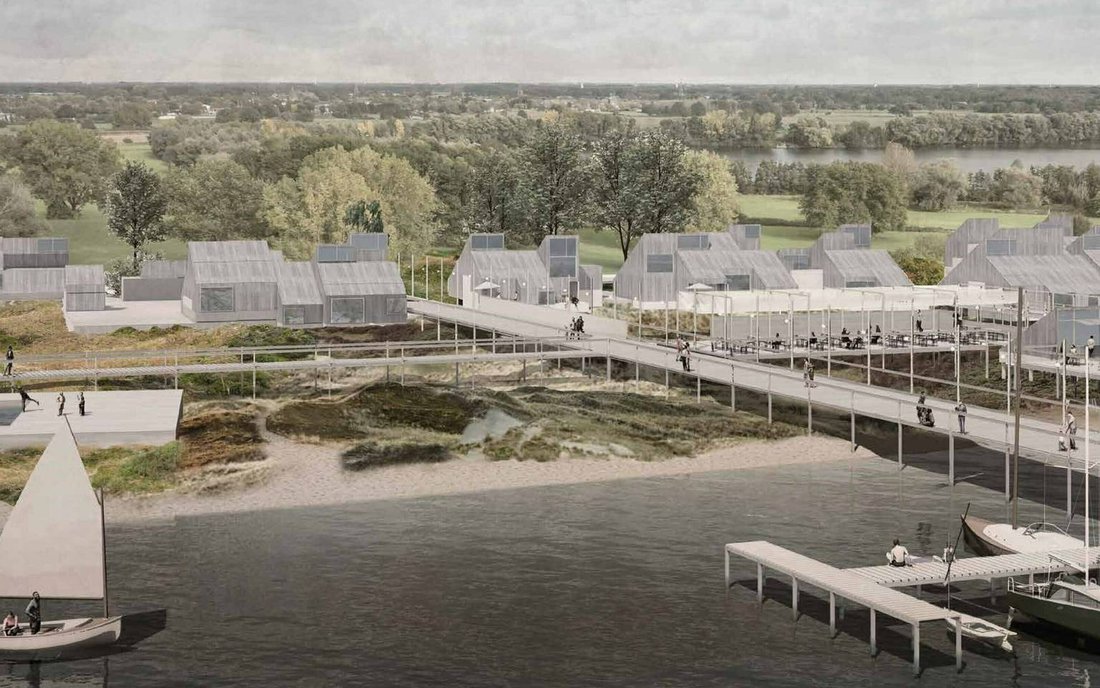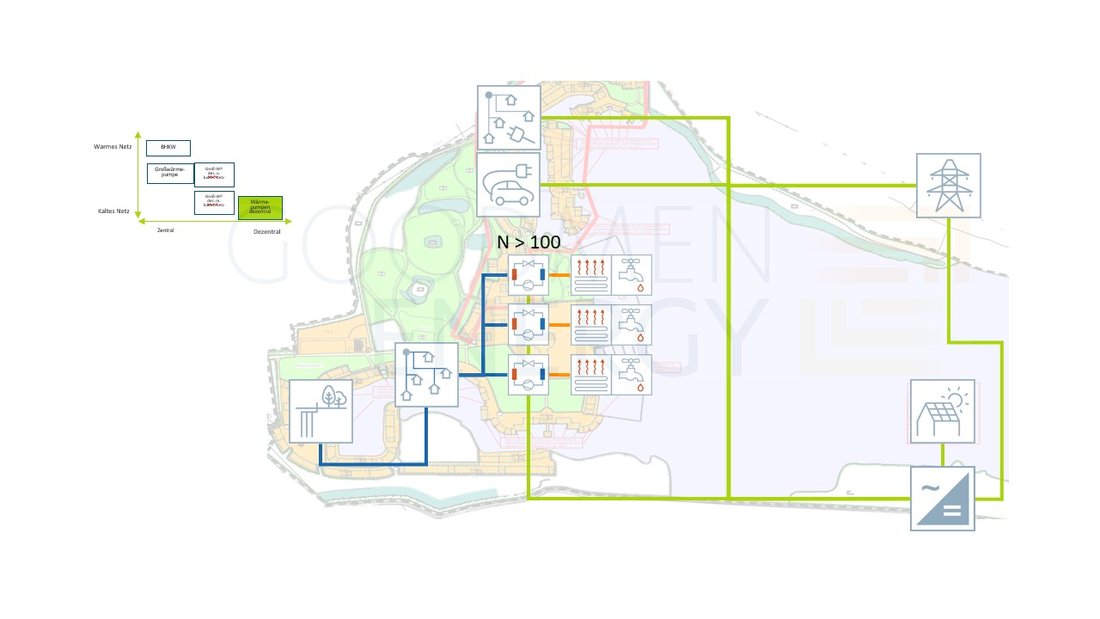
Renewable energy concept for holiday settlement at the quarry pond
A multitude of holiday homes will soon adorn the western shore of the Reeser Meer, a former gravel pit site near the Dutch border in North Rhine-Westphalia. The lake has meanwhile been reclaimed by nature and has a high recreational value. Therefore, it is also important to the operator to cover the thermal and electrical supply by renewable energies as far as possible, with a high degree of self-sufficiency. Our feasibility study focuses on the development of an economic energy supply system for heating, cooling and electricity that ensures cost-benefit-optimal CO2 minimisation during operation. As energy sources, we have evaluated all potentials at the site and developed two alternatives. The energy demand values are methodically derived from a similar project.
Details:
As part of the feasibility study, heating, electricity and cooling requirements were estimated for the holiday settlement at Reeser Meer. Based on the determined demand values, we developed various concepts for energy supply. The most attractive source concept turned out to be the thermal use of the lake water via an open circuit in combination with a ground collector with a flow of water through it. The collector can be regenerated via aquathermy and thus optimised in terms of yield.
We have planned the heating network in a decentralised way, with several heating centres that are connected to renewable sources and supply the respective neighbourhood via large heat pumps. PV electricity can be generated via a floating PV system. Depending on the size of the PV field, a large part of the electricity required for the heat pumps and other consumers can be covered. A battery storage system complements the overall system. With a sufficiently large system, self-sufficiency and a positive climate balance can be achieved for the holiday settlement.


